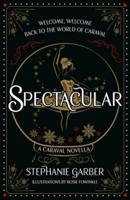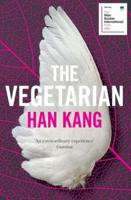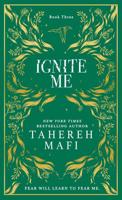Publisher's Synopsis
An ounce of prevention is worth a pound-or, in some cases, several hundred-of cure. Advertised as a dietary book for those who hate dietary books, Nedvetsky delivers. He spends a great deal of narrative time and space decrying different diets, their draconian strictures having turned off too many too soon. He explains how stress, a common response prompted by dieting, actually leads to weight gain. It empowers the reader to take matters into their own hands. It considers a holistic approach, body and mind, to dieting, and demonstrates the healing that can occur for both.In lieu of the traditional diet, Nedvetsky offers a buffet of alternate solutions, from engaging in "food recall" to changing one's dining atmosphere to revolutionizing the bite. It can be tempting, especially from a dieter's position, to read this as more of the same mind-over-matter sermon, but Nedvetsky instead establishes an indelible connection between brain and gut. Indeed, much of the ethos behind the 7 Steps involves satisfying the brain or fooling it outright so that the stomach responds accordingly. Needless to say, the average American brain is not sated. Lack of education is a principal culprit -we are not being taught how to eat from the outset, a crucial skill that Nedvetsky suggests is a family matter. "The skills of healthy eating," he attests, "have yet to become a staple of a child's upbringing".It's fascinatingly simple, really-the key is convincing the brain of its satiety, regardless of how much has actually been consumed. It's a battle for longevity and endurance-the longer one can keep the food in one's mouth, the more satiated the brain becomes and the less one overeats. Lo, the first of 7 Steps was taken.The above is also a great example of Nedvetsky's tone. "Eureka!" is inherently friendly, colloquial. Nedvetsky's foreign tongue (he is a native Russian), between scrupulous chewing, is planted firmly in cheek throughout. He sprinkles in familiar sayings and pop references, serves up anecdotal tips and tricks (portion control, mastication style) and marinates them in scientific rationale.It should be noted that, especially for those bogged down by such a particular style, that 7 Steps is a picture book. Numerous drawings by Paul Gunson accompany Nedvetsky's advice. In one depiction, a tortoise and hare are out to eat across from each other at a restaurant booth. The rabbit brings flatware to its mouth in rapid-fire ferocity, its many arms in a blur like a gastric Hindu god. The tortoise, true to form, munches peaceably at a salad. Aside from literally illustrating Nedvetsky's theories-in this case, that the speed of food intake contributes significantly to weight gain and longevity-Gunson's cute contributions imbue the 7 Steps with more personality, making it all the more palatable.In sum, 7 Steps 2 a Lean U is easy to swallow. It's a quick read, numbering just over 100 pages while managing to cheekily tackle some of the more pressing issues of our time. For those who are looking for a new spin on the diet book-and to be sure, most diet books claim the mantle-7 Steps seems a prime candidate. The information feels fresh, in part because it is predicated on disparaging tired methods. It empowers the reader to take matters into their own hands, while understanding that said hands have been tied, in part, by outside enterprises. It considers a holistic approach, body and mind, to dieting, and demonstrates the healing that can occur for both. With all considered-tasted, imbibed with saliva and chewed to oblivion-there are numerous paths by which one can change their eating habits and thus their lives, and Nedvetsky beats 7 Steps in the right direction. Will Bahr


























